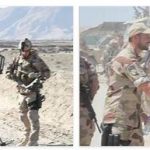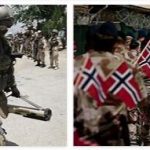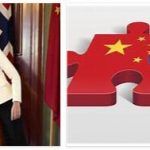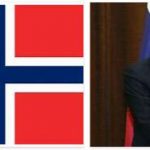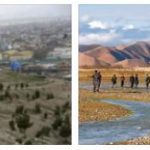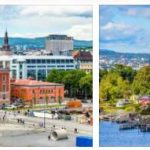4: 2002–2005: Peace argumentation and offensive defense
The Taliban regime was overthrown as early as 2001. The focus is now shifting towards peace and nation building , in addition to making the commitment more directly relevant to the defense of Norway.
As early as December 2001, the Minister for Development Aid stated that “the United States and the Allies are about to win the war in Afghanistan” (Johnson 2001), and the Prime Minister said that “hostilities are now coming to an end” (Bondevik 2002). The defense minister put it this way: “The terrorist, brutal and oppressive Taliban regime has been removed. The country has been liberated ”(Devold 2002). The leader of the Storting’s defense committee, Marit Nybakk, described the war as “a war of liberation for the women of Afghanistan” (Dagbladet 2002).
The concept of freedom is strong in our time, and many define freedom as a fundamental and universal human right. It is natural that freedom is associated with something positive: freedom of speech, freedom of choice, (women’s) liberation and detachment, as opposed to coercion, force majeure, occupation and oppression. The struggle appears as a liberation struggle, an independence, ie something that sounds good.
Reconstruction and peacebuilding in Afghanistan fit well into the history of Norway as a nation of peace : “[The] purpose of Norwegian military contributions internationally is and should be to support peace, human rights and democracy” (Bondevik 2004). Loyalty to the UN as “our foremost peacemaker” (Bondevik 2003) and as the bearer of the basic idea of peace and democracy (Bondevik 2003), shows that the argument turns in a more peace- and democracy-creating direction. From the use of military force in self-defense, the commitment now includes nation-building and democracy in Afghanistan.
In addition, the commitment was now presented as important for Norway’s own security . Norwegian participation was not only an obligation to “secure peace and support democratic forces” in Afghanistan (Petersen 2005), but also an “advanced defense of Norway” (Devold 2003) or an expanded use of the right to self-defense: “We can do not sit passively and wait for the next terrorist attack… the coalition will make use of its right to self-defense to prevent new attacks ”(Devold 2002). The suggestion that we may face an even greater danger plays on fear and is used as an argument for an offensive defense: “It has been reported that leaders in the Al Qaeda network have been in possession of chemical weapons as well as manuals for the production of weapons of mass destruction” ( Devold 2002).
In the 2005 election year, another argument emerged: “the heroin problem». The Minister of Foreign Affairs pointed out that “most people experience that the threats are often distant and indefinable”, but that “no one should be in doubt that the situation in Afghanistan is important for Norwegian everyday reality” (Petersen 2005). In other words, a lack of stability and security in Afghanistan could also threaten us in Norway: “… virtually all heroin sold in Norway has its origins in Afghanistan” (Petersen 2004). The link to Norwegian conditions makes the engagement more relevant. It was probably necessary if most people experienced the participation as “distant and indefinable”. In 2005, it was four years since 11.09, and the threat to Norway is not perceived as particularly great. Arguments about the fight against evil and offensive defense of Norway may thus seem ineffective. Creating closeness and relevance to a case has strong persuasive power. It evokes emotions and appeals to attitudes. It is important in the election campaign.
According to BEHEALTHYBYTOMORROW.COM, Norwegian authorities are now arguing differently than they did in the years 2001–2002 – away from the fight against evil to a fight for peace. The fight against terrorism is still clear, but it is no longer the existence of democracy that is threatened.
5: 2005–2010: More humanitarian argumentation
In 2005, there was a change of government in Norway, and a red-green, social democratic government took over. Norwegian forces are withdrawn from the US-led Operation Enduring Freedom (OEF), but remain in NATO’s ISAF force. The clear UN mandate remains an important justification for the commitment. But security in Norway and the fight against terrorism play less of a role than before. The new Minister of Defense formulates the main goal as “to provide the necessary degree of stability that can prepare the ground for the development of a sustainable Afghan society” (Strøm-Erichsen 2005). The goal of Norway’s military contribution is “to contribute to the development becoming possible” (Støre 2005).
ISAF forces are portrayed as a kind of police force that “is not a party to a conflict in Afghanistan” (Defense Department 2005). Arrested persons are not prisoners of war, «but persons who either disturb public order, (…) or who are suspected of criminal acts» (FD 2005). Development as a goal of engagement is the starting point for the humanitarian development argument: “We are not there to wage war, but to assist a poor state, broken down, exhausted by wars and abuses, on a demanding path to peace and development” (Støre 2006 ). Security can be achieved through development: How much security can be invested in the Norwegian-funded construction of 82 schools in Faryab? » (Strøm-Erichsen 2008). And development can only take place through military engagement:

